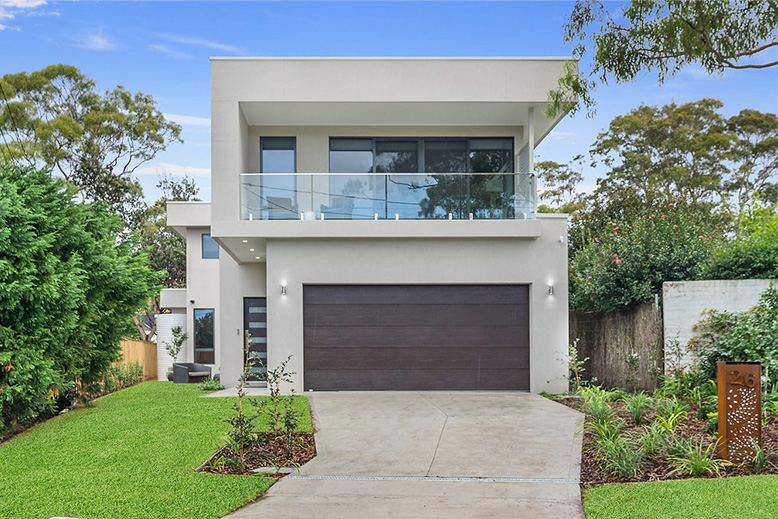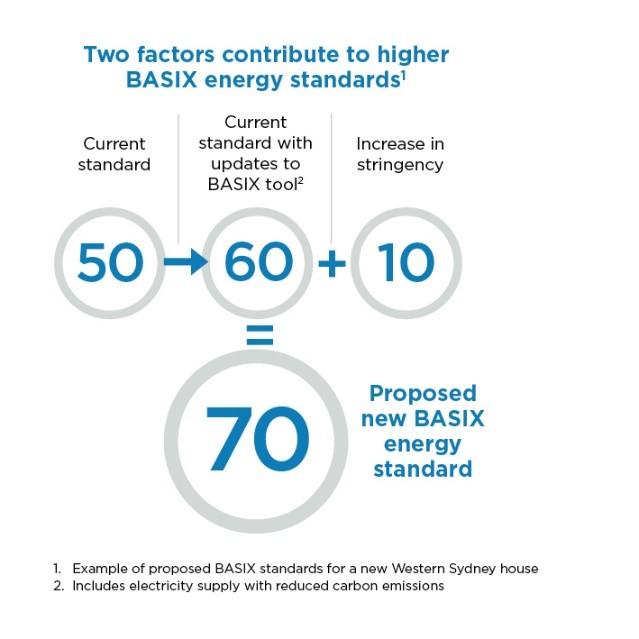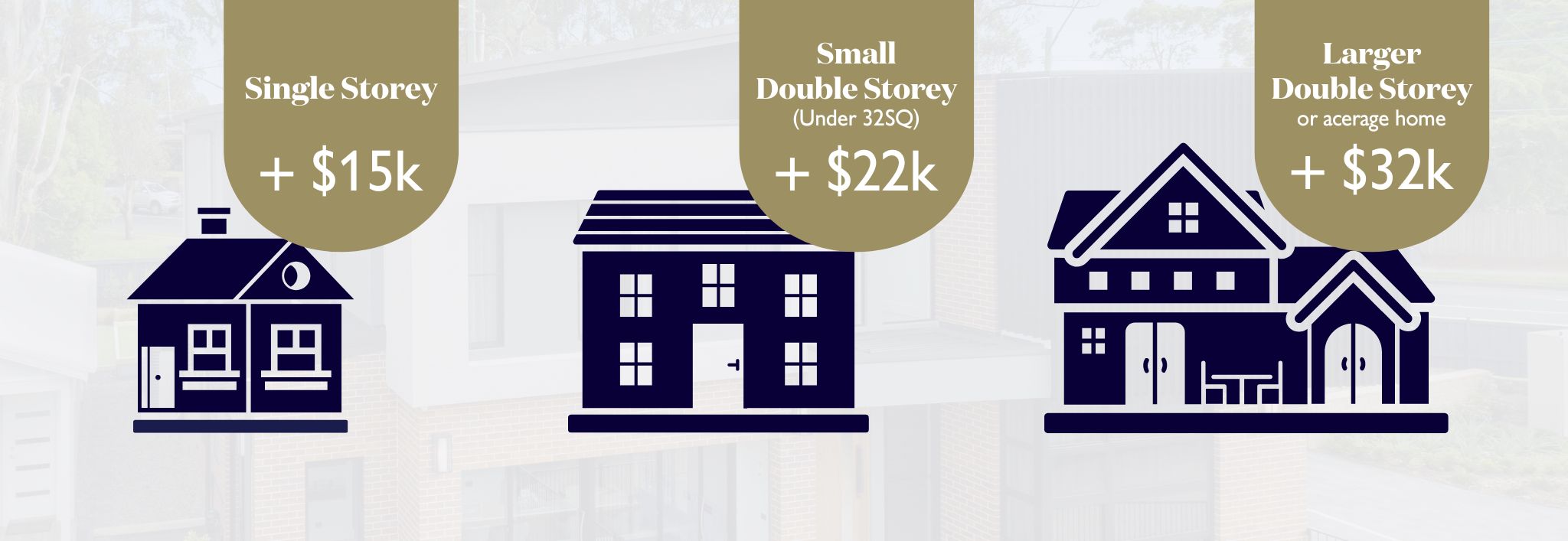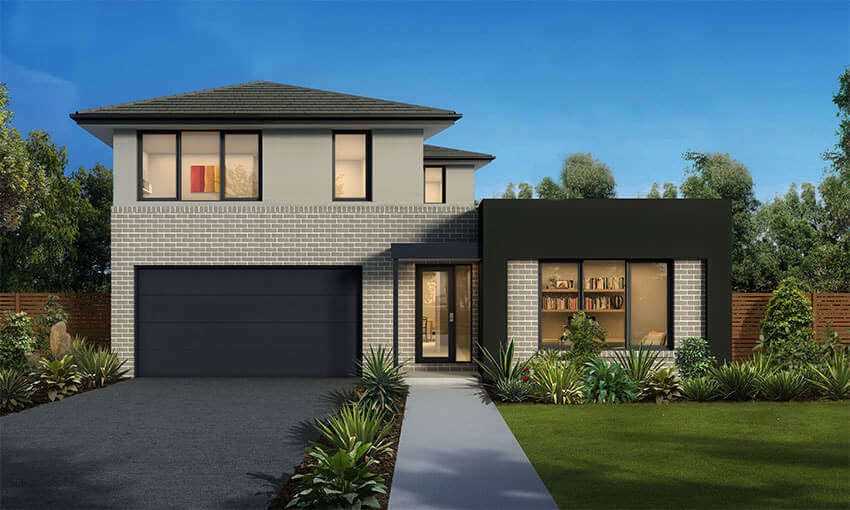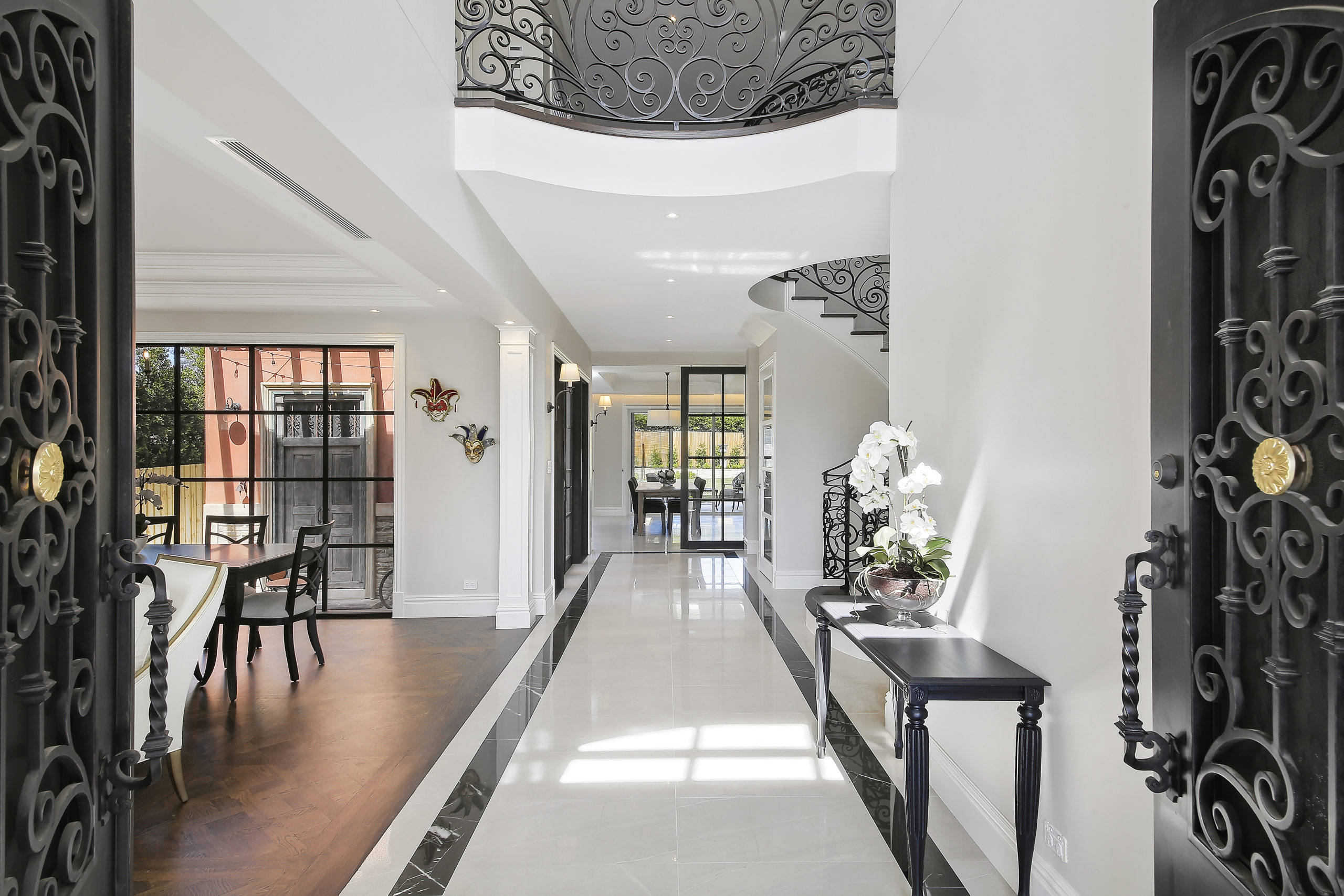
Basix Changes 2024: Sustainability Standards & Implications
The year 2024 brings significant changes to Basix, impacting various sectors. These alterations promise to reshape strategies and operations across industries. From technology advancements to regulatory shifts, businesses must adapt swiftly to stay competitive in the evolving landscape. Understanding these transformations is crucial for organisations aiming to thrive amidst the dynamic environment. Stay informed about the Basix changes in 2024 and equip yourself with insights essential for navigating this new terrain effectively.
BASIX Overview
What is BASIX?
According to the Housing Industry Association, BASIX is a web-based planning tool designed to assess potential performance against a range of sustainability standards.
The increased BASIX standards aim to reduce greenhouse gas emissions and water usage by setting higher targets for energy efficiency, thermal comfort, and water conservation.
By improving the sustainability of each new house build, the NSW Government hopes to reduce the environmental impact of the housing sector and promote a more sustainable future.
What Changes to BASIX are Coming?
The new standards will require builders to achieve higher targets to pass through BASIX. For example, new homes will need to have more insulation, efficient appliances, and use less water for irrigation. The targets will vary depending on the type of building and location, but they will generally be more stringent than the previous standards. So it is important if you are planning to build a home for family suburbs in Sydney.
The key changes to be aware of are:
- External Wall Insulation – R2.5 minimum
- Roof Insulation – R6.0 minimum
- Use of light roof colours as much as possible (subject to location)
- Single storey home designs to have Low E to bedroom windows and Double Glazed to living room windows
- Double storey homes have double glazing to all windows (except wet areas).
- Electric Hot Water systems to increase in size and Small-scale Technology Certificates (STCs)
- Potential PV panels
(Source: https://pp.planningportal.nsw.gov.au/BASIX-standards)
How Will the Increase to BASIX Standards Affect You?
These changes are the most significant updates that BASIX have brought in since it’s commencement. Although the new Legislation will help work improving overall sustainability in the housing sector, these changes will result in increased initial upfront costs. See below what that might look like for your build:
This could also mean sacrificing elements of your custom home design in order to align with BASIX requirements. As your chosen builder, we will work closely with you to understand your needs and creative inspiration, tailoring your floorplan to suit you, as well as complying with BASIX requirements.
We know how essential it is for you to bring your vision to life while maintaining your budget. Therefore, you need to ensure your Complying Development Certificate (CDC), or Development Application (DA) is lodged, and your build passes BASIX before the new Legislation takes place on 1st October.
We highly recommend you have received your FREE quote and signed your tender by no later than 1st June 2023 to avoid the extra costs mentioned above. This will allow us enough time to ensure the council accepts your lodgment before the October cut-off.
How Can New South Homes Help?
It is likely that council will see a higher volume of lodgments as a result of these changes, so if you’re considering a new house build in Sydney– start by chatting to us about what we can do for your block today.
We have a team of experts who will collaborate with you to make your dream home a reality while complying with BASIX requirements. We have an in-house BASIX certifier to work closely with our designers, ensuring each project is carefully thought out from our pre-designed floorplans to our custom design homes.
Chat to Elias today for any queries you might have about the increase to BASIX standards. You can also head to NSW Government Planning Portal for additional information on the upcoming increase to BASIX standards.
2024 Changes
BASIX, a sustainability tool in NSW, focuses on cutting water and energy use in new residential constructions. It’s mandatory for all fresh housing projects to comply with BASIX standards. These measures are crucial as they contribute significantly to reducing the environmental impact of buildings.
The upcoming changes in 2024 will further enhance the effectiveness of BASIX requirements. For instance, there could be stricter targets set for water and energy conservation. This means that new residential buildings will have to meet more stringent criteria regarding their sustainability practices. The adjustments aim to align with evolving environmental standards and promote greener construction practices.
These modifications are vital because they help address pressing issues like climate change by encouraging sustainable living through improved building design and functionality. By implementing these changes, NSW can progress towards a more eco-friendly future while also promoting resource efficiency within the construction industry.
BASIX Changes NSW Explained
New Requirements
The upcoming BASIX changes in 2024 are set to bring about significant alterations. These modifications will enforce stricter guidelines pertaining to energy efficiency and sustainability within new residential constructions. The primary objective of these adjustments is to enhance the overall environmental performance of newly constructed homes. By implementing more rigorous standards, the aim is to reduce the ecological footprint of buildings and promote sustainable practices.
The revised BASIX requirements for 2024 will encompass a wide array of elements, including energy consumption, water usage, and thermal comfort. Builders and developers embarking on new projects will be mandated to adhere to these updated criteria in order to secure their BASIX certification. Through these changes, there is an overarching goal of encouraging the adoption of more sustainable building techniques that prioritise resource conservation and eco-friendly design principles.
Energy Efficiency Targets
One key aspect of the forthcoming BASIX changes centres around setting higher benchmarks for energy efficiency in new residential properties. Builders will be compelled to integrate various measures such as enhanced insulation, energy-efficient appliances, and renewable energy systems into their construction plans. This shift towards greener building solutions not only aids in curbing greenhouse gas emissions but also serves as a means to lower utility costs for homeowners in the long run.
In essence, by raising the bar on energy efficiency standards through incorporating features like improved insulation or renewable energy sources into home designs can significantly contribute towards reducing carbon footprints while simultaneously offering financial benefits for homeowners.
Importance of BASIX in 2024
Sustainability Standards
The State Environmental Planning Policy (SEPP) for Sustainable Buildings works alongside BASIX. It introduces extra sustainability rules for residential projects in NSW. New developments must adhere to both BASIX and the Sustainable Buildings SEPP.
To ensure new constructions meet the latest standards, the updated BASIX will align with current sustainability practices. This alignment takes into account various factors such as construction materials, waste management, and indoor air quality. These guidelines focus on creating homes that are healthier and more eco-friendly.
Mandatory Requirements
Sustainability Standards for Residential Development
Achieving 7-Star Homes
Builders and developers must adhere to BASIX mandatory requirements, ensuring minimum water efficiency levels, rainwater tank installation, and solar hot water systems. Failure to comply can lead to penalties or refusal of development consent. The 2024 changes aim to promote the construction of 7-star homes, indicating exceptional energy efficiency and sustainability performance. To achieve this rating, builders need to incorporate specific design strategies and technologies.
Implementing BASIX standards guarantees that residential developments meet stringent criteria for sustainability. These standards not only benefit the environment but also contribute towards reducing energy consumption in homes. By enforcing these regulations, authorities ensure that new constructions align with eco-friendly practices such as efficient water usage and renewable energy sources.
Embodied Emissions
The upcoming changes in 2024 emphasise the importance of constructing highly sustainable homes with a 7-star rating under BASIX guidelines. This focus on achieving superior energy efficiency signifies a significant shift towards environmentally conscious building practices. It encourages builders to adopt innovative design approaches and cutting-edge technologies aimed at reducing carbon footprints.
Incorporating BASIX standards into residential developments results in long-term benefits for homeowners through reduced utility bills and enhanced comfort within their living spaces. Moreover, these sustainable practices contribute positively towards mitigating climate change by lowering greenhouse gas emissions associated with residential buildings.
Implications of Increased BASIX Standards
Impact on NSW
The updated BASIX changes 2024 will now account for embodied emissions in building materials. This means considering the carbon footprint linked to producing, transporting, and disposing of materials. Builders must opt for low-emission materials to minimise the overall environmental impact. For instance, using sustainable timber or recycled steel can help reduce carbon emissions associated with construction.
This shift is crucial as it aligns with global efforts to combat climate change by reducing greenhouse gas emissions from construction activities. By incorporating embodied emissions into BASIX standards, NSW aims to promote eco-friendly practices in the building sector and create a more sustainable future. Implementing these changes will not only benefit the environment but also lead to healthier living spaces for residents through improved air quality and reduced energy consumption.
Cost Implications
The modifications to BASIX standards are set to have a substantial effect on the construction industry in NSW. Builders and developers will need to adjust their methods and choices significantly to meet these new requirements effectively. For example, investing in energy-efficient appliances or solar panels may become standard practices under the revised regulations.
While there might be initial challenges in transitioning towards meeting higher sustainability benchmarks, such as increased upfront costs for green technologies or materials, these changes are essential for fostering long-term benefits like lower utility bills and enhanced property value due to improved sustainability ratings. Ultimately, embracing these cost implications is vital for creating a greener built environment that prioritises resource efficiency and environmental responsibility.
Understanding the New BASIX Requirements
Single Dwellings
The 2024 changes in BASIX standards might affect builders and homebuyers financially. By incorporating energy-efficient practices, construction costs could rise. Despite higher initial expenses, these endeavours can result in lasting savings by reducing energy expenditures over time.
In the context of calculating emissions, the updated BASIX rules will encompass all residential building types, including single dwellings. To secure BASIX certification, individual housing projects must adhere to these fresh guidelines. This ensures that even standalone residences play a part in achieving sustainability objectives.
Impact of BASIX Changes in NSW
Home Buyers
BASIX changes in 2024 bring about advanced tools that calculate a building’s energy, water consumption, and greenhouse gas emissions. These calculations are crucial as they evaluate how environmentally friendly a building design is. By employing these tools, builders can enhance their designs to achieve better sustainability outcomes. For home buyers, this means the assurance of purchasing properties with improved environmental performance.
Homebuyers can now benefit from the 2024 BASIX changes by investing in more energy-efficient and sustainable homes. The certification provided by BASIX guarantees a building’s environmental performance, giving buyers peace of mind regarding the property’s sustainability features. With these changes, individuals looking to purchase homes have access to vital information that enables them to make informed decisions based on the property’s green credentials.
Builders
Builders play a significant role in implementing the new BASIX changes effectively. By utilising sophisticated modelling tools offered by BASIX, builders can optimise their designs for enhanced sustainability outcomes. These tools enable builders to assess and improve their projects’ energy efficiency and overall environmental impact. Through meticulous planning using these resources, builders can construct properties that align with the latest sustainability standards.
With updated regulations like those introduced through the 2024 BASIX changes, builders are presented with an opportunity to create structures that are not only compliant but also environmentally conscious. By embracing these modifications and integrating sustainable practices into their construction processes, builders contribute towards reducing carbon footprints and promoting eco-friendly living spaces for future occupants.
Mandatory Requirements for New Builds in NSW
Energy Efficiency
Builders are crucial in meeting the new BASIX changes 2024. They must adopt sustainable practices like efficient lighting and renewable energy systems. These modifications ensure reduced energy consumption and lower carbon emissions, aligning with the updated BASIX focus on energy efficiency. Adapting to these requirements is essential for builders to remain competitive in a greener market.
Implementing sustainable design principles is vital for builders under the new BASIX guidelines. For instance, incorporating insulation into new builds helps regulate indoor temperatures efficiently, reducing reliance on heating and cooling systems. Efficient lighting choices not only cut down electricity usage but also contribute to creating eco-friendly living spaces that appeal to environmentally conscious buyers.
Reporting for BASIX
The revised BASIX necessitates builders to integrate various measures such as insulation, efficient lighting solutions, and renewable energy technologies into their projects. These initiatives aim at enhancing overall building sustainability by decreasing energy consumption levels significantly. By embracing these changes proactively, builders can elevate the environmental performance of their constructions while complying with mandatory regulations set forth by the updated BASIX framework.
Incorporating renewable energy systems like solar panels can substantially reduce a building’s reliance on traditional power sources, promoting self-sufficiency and contributing positively towards lowering carbon footprints associated with residential properties. Ensuring proper insulation installation not only enhances a building’s thermal efficiency but also leads to long-term cost savings through reduced utility bills.
Cost Implications of BASIX Changes
New Build Costs
Builders and developers must provide detailed reports for BASIX certification. These reports demonstrate compliance with energy, water, and thermal comfort standards. Ensuring accurate reporting is crucial to meeting sustainability goals effectively.
By investing in energy-efficient technologies and sustainable materials, builders can align with the 2024 changes. While this may lead to higher construction costs initially, the long-term benefits include reduced energy bills. Therefore, these upfront expenses can translate into substantial savings over time.
Sustainable SEPP Arrangements
The upcoming alterations in BASIX requirements could result in increased expenses for new constructions. Builders will need to incorporate more sustainable practices, which might require additional investments at the outset but offer rewards through lower operational costs later on. This shift towards sustainability is essential for achieving environmental targets set by BASIX.
Achieving 7-Star Energy Efficiency in Homes
Targets and Costs
The Sustainable Buildings SEPP works alongside BASIX changes 2024 to promote sustainable development in NSW. It outlines specific measures for reaching sustainability objectives in residential constructions. To ensure new projects align with environmental standards, compliance with both BASIX and the Sustainable Buildings SEPP is mandatory.
Updating BASIX will bring forth fresh energy efficiency and sustainability benchmarks. While meeting these targets may incur extra expenses for builders and developers initially, the long-term advantages of reduced environmental impact outweigh the initial costs. By adhering to these updated requirements, homes can achieve a higher level of energy efficiency, contributing positively to the environment.
Implementing Dates
The revised BASIX changes 2024 aim to elevate energy efficiency standards in residential properties. Builders and developers must adjust their practices to meet these new criteria effectively. Although this transition may involve additional financial investments at first, it ultimately leads to more sustainable buildings that consume less energy over time.
Builders need to be mindful of the implementation dates associated with these changes as non-compliance could result in penalties or delays in project approvals. Despite potential cost implications during this adjustment period, embracing enhanced energy-efficient practices benefits not only individual homeowners but also contributes significantly towards reducing overall carbon footprints within communities.
Conclusion
The significant revisions to BASIX regulations in 2024 mark a pivotal juncture in sustainable residential development. The outlined changes underscore the imperative for heightened energy efficiency and environmental consciousness in new builds, reflecting a broader commitment to reducing carbon footprints and enhancing eco-friendly practices within the construction industry. As stakeholders navigate these updated requirements, a proactive approach to compliance becomes paramount, ensuring seamless adaptation to the evolving standards.
Embracing the enhanced BASIX criteria not only fosters greener living spaces but also cultivates a culture of innovation and responsibility towards our planet. To stay abreast of these transformative developments, individuals and organisations are encouraged to delve deeper into the intricacies of the new BASIX framework, exploring opportunities for synergy between sustainability goals and operational efficiencies. By engaging with these changes thoughtfully and purposefully, a collective stride towards a more sustainable future is not only conceivable but also achievable. For more helpful information contact us.
Experience
the
Difference
Ready to start your building journey? Chat to our team of experts today and get a FREE personalised quote
Find Out More
Related Posts

